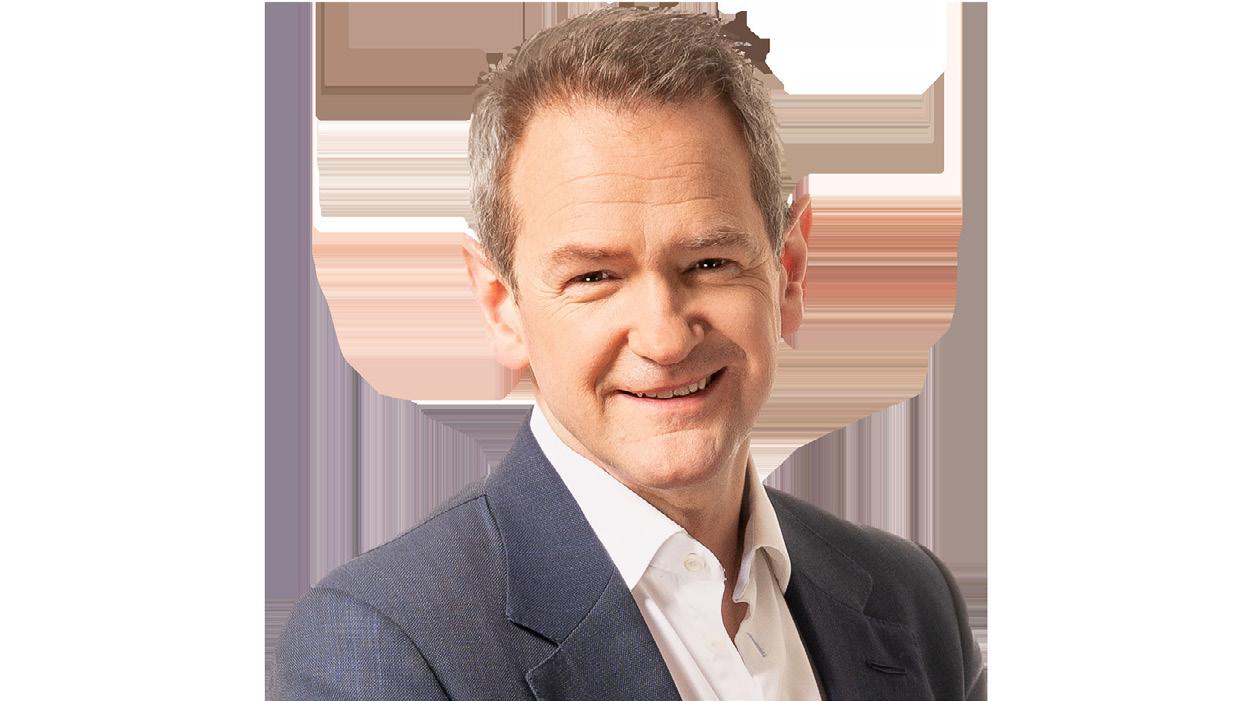The Planets

Usher Hall, Edinburgh
Fri 19 Apr 2024 7.30pm
Glasgow Royal Concert Hall
Sat 20 Apr 7.30pm

Sponsored by



Usher Hall, Edinburgh
Fri 19 Apr 2024 7.30pm
Glasgow Royal Concert Hall
Sat 20 Apr 7.30pm

Sponsored by

Usher Hall, Edinburgh Fri 19 Apr 2024 7.30pm
Glasgow Royal Concert Hall Sat 20 Apr 7.30pm
The menace of Mars, the beauty of Venus, the noble tunes of Jupiter … everyone has their favourite movement of The Planets. But there’s infinitely more to Holst’s masterpiece than just great melodies, and tonight the incredible John Wilson brings his special flair to the RSNO in an all-British programme with a difference. Alice Coote dives into Elgar’s surprisingly passionate Sea Pictures, and ancient mysteries are uncovered in the haunting music of John Ireland.
IRELAND The Forgotten Rite [9’]
ELGAR Sea Pictures Op37 [23’]
HOLST The Planets Op32 [51’]
John Wilson Conductor
Alice Coote Mezzo-soprano
Sopranos and Altos of the RSNO Chorus
Stephen Doughty Director, RSNO Chorus
Royal Scottish National Orchestra
The Glasgow performance will be recorded for the RSNO Archive. Supported by the Iain and Pamela Sinclair Legacy.

Sponsored by

If viewing these notes at the concert, please do so considerately and not during performances. Please silence all mobile telephones and alerts, and refrain from taking photographs, without flash, until the end of each piece.
EDN Fri 26 Apr 2024: 7.30pm
GLW Sat 27 Apr 2024: 7.30pm
Esa-Pekka Salonen Nyx
Errollyn Wallen Violin Concerto
(UK Premiere and RSNO Co-commission)
Stravinsky Petrushka
Pre-concert talk, 6.45pm
RSNO Viola Katherine Wren
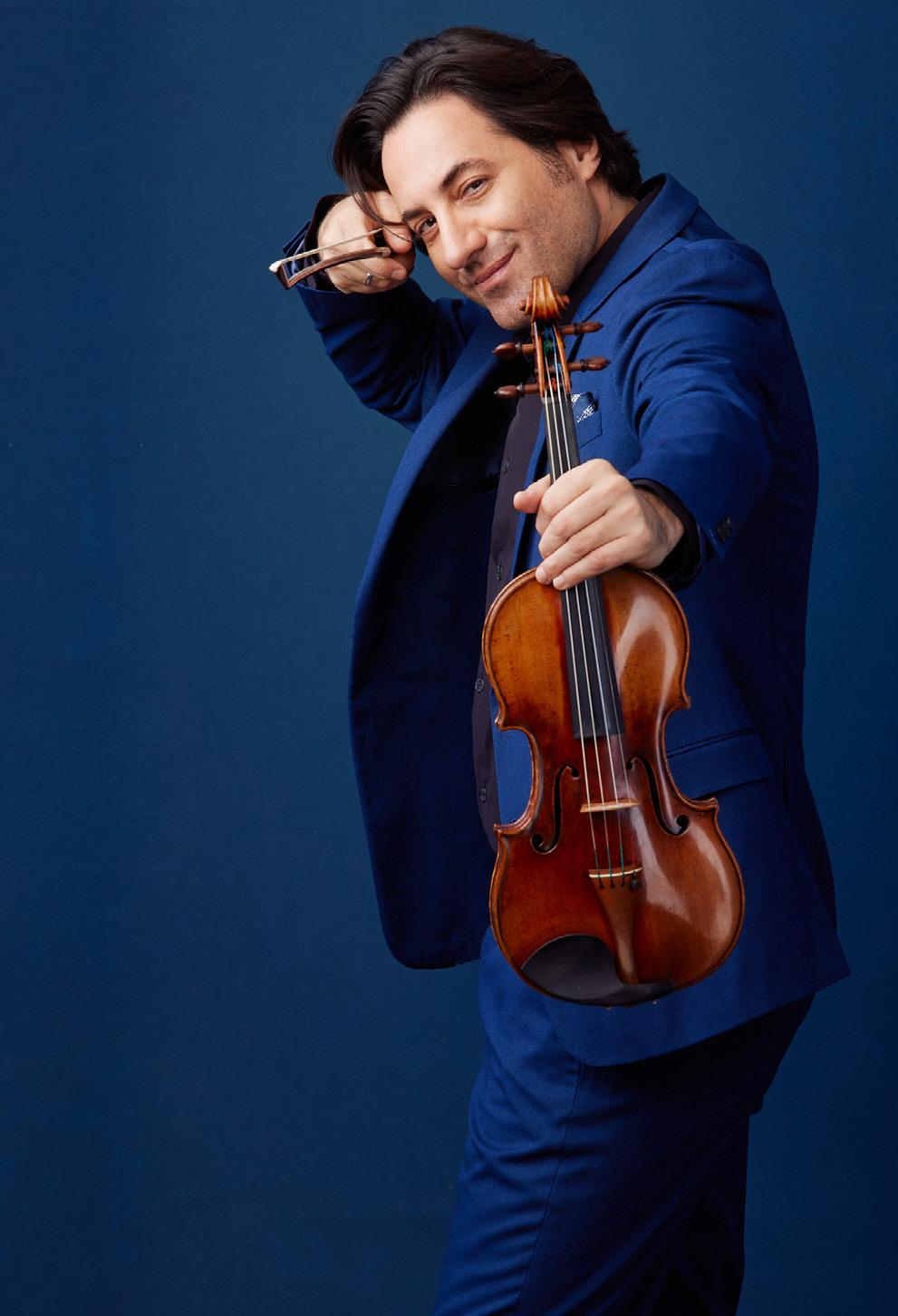
Joana Carneiro Conductor
Philippe Quint Violin
In memory of Gerald Larner and Lynne Walker
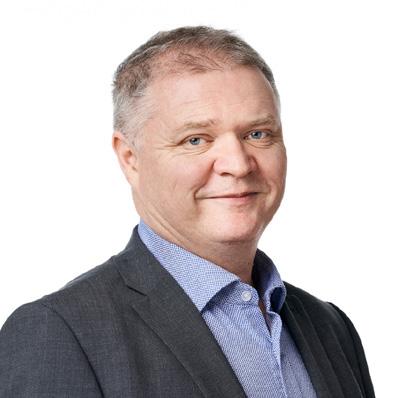
Welcome back for the first RSNO 2023:24 Season concert following the Easter break. In the past three weeks, as well as finding some time to rest, we’ve been keeping busy across the organisation. Our Youth Chorus sang alongside Dunedin Consort in their performance of Bach’s Matthew Passion; our recording team captured new material for our digital education partner Charanga; and crucially, we launched our 2024:25 Concert Season.
I’m extremely proud to share this programme of exciting performances with you, and I’m particularly pleased to welcome Patrick Hahn as our new Principal Guest Conductor, succeeding the esteemed Elim Chan and, before Elim, present RSNO Music Director Thomas Søndergård. You may have attended Patrick’s first performance with us in November 2022, after which I was inundated with requests from our musicians to invite him back.
The 2024:25 Concert Season features a significant focus on choral works, spotlighting the RSNO Chorus’ talents in particular, the Sopranos and Altos of which join us tonight. You can find out about all the concerts by picking up a brochure from the foyer or online at: rsno.org.uk/whats-on/season. Tickets go on general sale on 13 May.
Before we reach the new Concert Season, however, we must first close off the present one, and there are still many special evenings to come. In tonight’s all-British programme we are joined by the hugely popular conductor John Wilson, who has a great affinity with this repertoire, and we are delighted to be joined by renowned mezzo-soprano Alice Coote for Elgar’s deeply moving Sea Pictures. The Orchestra is joined this evening for the first time as RSNO contracted musicians by William Knight and Katie Smith in the clarinet and trumpet sections respectively. I hope you’ll give them a warm welcome!
If you enjoy tonight’s concert and would like to share it with a friend, don’t forget that the Glasgow performance is being recorded as part of our Digital Season. Find out more at: rsno.org.uk/watch-online
Alistair Mackie CHIEF EXECUTIVE






































































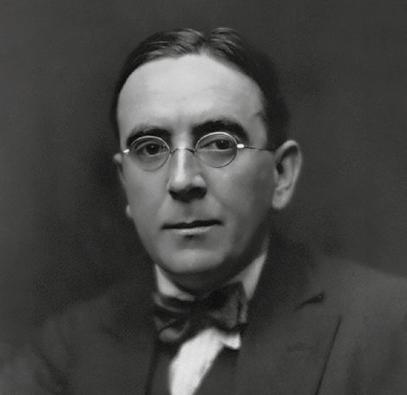
London, 13 September 1917
DURATION 9 minutes
John Ireland cuts a strange, lonely figure on the stage of 20th-century British music. While the reputations of his contemporaries rest largely on big public works, Ireland wrote no symphonies, operas or ambitious choral works. His luscious but mostly fireworks-free Piano Concerto is still heard occasionally today, but he is best remembered for his exquisite miniatures: solo piano gems like The Darkened Valley and (in its original form) The Holy Boy, songs such as the John Masefield setting Sea Fever, the hymn My Song is Love Unknown and the choral motet Greater Love Hath No Man
Samuel Johnson famously described John Milton as a poet ‘who could strike a colossus from a rock, but he couldn’t carve heads on cherry stones’. Ireland was clearly the reverse. Like the Norwegian Edvard Grieg – whose Piano Concerto is also his only enduringly successful large-scale concert work – Ireland was most himself when speaking intimately, and on
short timescales. After the premiere of his breakthrough work, the Second Violin Sonata, in 1917, Ireland wrote (with a hint of mixed feelings), ‘It was probably the first and only occasion when a British composer was lifted from relative obscurity in a single night by a work cast in a chamber-music medium.’
Was this a natural, inborn inclination, or did Ireland turn inward in reaction to terrible loss?
Born in Cheshire, of partly Scottish descent, Ireland lost his mother at 14 and his griefshattered father the following year. A friend later described him as ‘a self-critical, introspective man, haunted by memories of a sad childhood’. An almost lifelong bachelor, Ireland married one of his students briefly in 1926, but the marriage was soon annulled, apparently unconsummated. A strange infatuation with another student, Helen Perkin, inspired his one grand(ish) gesture, the Piano Concerto (1930); but he withdrew the dedication when she married someone else, seemingly unaware of Ireland’s feelings. If he was gay (as seems likely from his private writings) or bisexual, there are no accounts of relationships or erotic encounters with men.
At some stage in his twenties, Ireland discovered the writings of Welsh author and mystic Arthur Machen, chiefly through his then little-known erotically charged tales of pagan magic and witchcraft, The House of Souls and The Hill of Dreams; significantly, Ireland probably read about them through a review by Oscar Wilde’s former lover Alfred Douglas. They kindled in Ireland a fascination with lost rituals and lonely, faeryhaunted places, and heightened his sense of his own Celtic inheritance. Several visits to the Channel Islands followed, where Ireland found the local legends, mysterious ruined monuments, the embrace of the sea and the sense of insular remoteness beautifully suited to his character and tastes. It was there that he composed his
lovely piano piece An Island Spell in 1912 and, the following year, the orchestral tone poem, or ‘prelude for orchestra’, The Forgotten Rite Sir Henry Wood conducted the first performance at a Proms Concert in London’s Queen’s Hall on 13 September 1917.
Although this short but highly atmospheric mood-picture clearly owes something to the example of Debussy ’s impressionistic ‘preludes’, and also to the sumptuous, brooding land- and seascapes of Wagner ’s Celtic-based masterpiece Tristan and Isolde, The Forgotten Rite is utterly individual. Ireland’s flair for delicious harmony –as ripe as Delius’, but subtler – is evident right from the slowly undulating string harmonies that begin and end the piece. As befits a hymn to the primal nature-god Pan, a flute introduces a dreamy pan pipe, which grows bolder as it is taken up by the trumpet. The orchestral writing becomes more ardent as the god reveals himself, but after the climax has abated, we are left with a sense of mystery – what, exactly, have we just witnessed? Was it all a dream? As the opening string harmonies return, the chiming of the celeste remains as a memory of magic glimpsed, but never quite grasped.
© Stephen Johnson1 Mar The US government released the text of the Zimmermann Telegram (intercepted by British intelligence), which proposed a military alliance between Germany and Mexico if the US entered World War I
7 Mar Livery Stables Blues by the Original Dixieland Jass [sic] Band became the first commercially released jazz recording
8 Mar (23 Feb in old-style calendar) The February Revolution began in Russia as bread riots spread through Petrograd (later Leningrad, now St Petersburg)
15 Mar Nicholas II abdicated, effectively ending the Russian Empire after 196 years
6 Apr The US declared war on Germany
13 May to 13 Oct In Portugal, 10-year-old Lúcia Santos and her cousins reported experiencing apparitions of Jesus’ mother Mary, later known as Our Lady of Fátima
4 Jun The first Pulitzer Prizes, for biography, history and journalism, were awarded
7 Jun At the Battle of Messines, the British army detonated 24 ammonal mines, killing 10,000 German troops, the deadliest manmade non-nuclear explosion in history
Jul 16-year-old Elsie Wright and 9-year-old Frances Griffith photographed fairies at Cottingley, Yorkshire, fooling, among others, Sir Arthur Conan Doyle
7 Nov (25 Oct in old-style calendar) In the October Revolution, Vladimir Lenin and the Bolshevik Party led workers in storming the Winter Palace in Petrograd, triggering the Russian Civil War
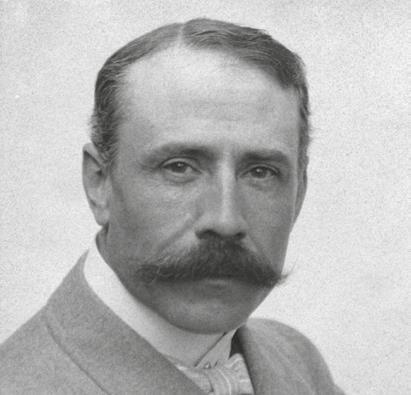
Norwich, 5 October 1899
DURATION 23 minutes
Sea Slumber Song
In Haven (Capri)
Sabbath Morning at Sea
Where Corals Lie
The Swimmer
Elgar composed his set of sea songs in July 1899, though an earlier version of In Haven (then called Love Alone Will Stay) existed in 1897 and was published the following year as Lute Song
Initially the intention was to write the songs for soprano, but when Elgar was commissioned to write a choral work for the Norfolk and Norwich Triennial Festival a ‘scena for either Contralto, Tenor or Bass’ was agreed instead. The resulting orchestral song-cycle involving the great contralto Dame Clara Butt proved a more than acceptable substitute, though in the event, the final song was still too high for her and had to be lowered.
In Norwich, Elgar stayed with one James Mottram, who left the following reminiscence of the premiere, given on 5 October 1899:
Elgar’s distinguished, hollow-chested figure, rather that of a hawk dreaming poetry in captivity, took the baton, and there stood up beside him the majestic figure of Clara Butt, in a wonderful dress, the material of which, it was whispered, indicated appropriately the scales of a mermaid’s sinuous form.
Elgar conducted, and not long afterwards gave four of the songs their London premiere, again with Butt though with himself at the piano – clearly a permissible alternative – these accompaniments immediately suggesting the orchestra. Innumerable contraltos and mezzosopranos have subsequently taken up the cycle, as well as the occasional soprano or baritone.
Sea Slumber Song (text by the Victorian poet Roden Noel) magically conjures up the sombre grey ocean orchestrally, not only its surge and sweep, but also the fleck of the foam on the crest of the wave on the harp. One or two of the song ’s motifs will recur in the third and final songs.
In Haven presents a more lightly textured intimacy. Caroline Alice Elgar, the composer ’s wife, wrote the words, ‘Capri’ referencing a holiday she spent there before meeting the composer.
Sabbath Morning at Sea sets Elizabeth Barrett Browning and adumbrates a grand vision that opens wide on the very first phrase: maestoso (majestically) and grandioso (grandly) are typical indications in the score.
Richard Garnett’s text is set in Where Corals Lie, which is again lighter, more delicate, evanescent and evocative.
The largest song in the cycle is The Swimmer, setting a poem by the BritishAustralian poet Adam Lindsay Gordon. Its stormy opening leads into something determined in its constant forward drive which also incorporates small, subtle musical reminiscences of Sabbath Morning at Sea and Where Corals Lie.
© George Hall
Sea Slumber Song
Sea birds are asleep, The world forgets to weep, Sea murmurs her soft slumber-song
On the shadowy sand
Of this elfin land;
‘I, the Mother mild, Hush thee, oh my child, Forget the voices wild!
Isles in elfin light
Dream, the rocks and caves, Lulled by whispering waves, Veil their marbles bright.
Foam glimmers faintly white
Upon the shelly sand
Of this elfin land;
Sea-sound, like violins, To slumber woos and wins, I murmur my soft slumber-song, Leave woes, and wails, and sins.
Ocean’s shadowy might
Breathes good night, Good night …’
Roden Noel (1834-1894)
In Haven (Capri)
Closely let me hold thy hand, Storms are sweeping sea and land; Love alone will stand.
Closely cling, for waves beat fast, Foam-flakes cloud the hurrying blast; Love alone will last.
Kiss my lips, and softly say: ‘Joy, sea-swept, may fade to-day; Love alone will stay.’
Caroline Alice Elgar (1848-1920)
Sabbath Morning at Sea
The ship went on with solemn face; To meet the darkness on the deep, The solemn ship went onward.
I bowed down weary in the place; For parting tears and present sleep Had weighed mine eyelids downward.
The new sight, the new wondrous sight! The waters around me, turbulent, The skies, impassive o’er me, Calm in a moonless, sunless light, As glorified by even the intent Of holding the day glory!
Love me, sweet friends, this sabbath day. The sea sings round me while ye roll
Afar the hymn, unaltered, And kneel, where once I knelt to pray, And bless me deeper in your soul
Because your voice has faltered.
And though this sabbath comes to me
Without the stolèd minister, And chanting congregation, God’s Spirit shall give comfort.
He who brooded soft on waters drear, Creator on creation.
He shall assist me to look higher, Where keep the saints, with harp and song, An endless sabbath morning, And, on that sea commixed with fire, Oft drop their eyelids raised too long
To the full Godhead’s burning.
Elizabeth Barrett Browning (1806-1861)
The deeps have music soft and low
When winds awake the airy spry, It lures me, lures me on to go
And see the land where corals lie.
The land, the land, where corals lie.
By mount and mead, by lawn and rill, When night is deep, and moon is high, That music seeks and finds me still,
And tells me where the corals lie.
And tells me where the corals lie.
Yes, press my eyelids close, ’tis well,
Yes, press my eyelids close, ’tis well,
But far the rapid fancies fly
To rolling worlds of wave and shell, And all the land where corals lie.
Thy lips are like a sunset glow,
Thy smile is like a morning sky, Yet leave me, leave me, let me go
And see the land where corals lie.
The land, the land, where corals lie.
Richard Garnett (1835-1906)
With short, sharp, violent lights made vivid, To southward far as the sight can roam,
Only the swirl of the surges livid,
The seas that climb and the surfs that comb. Only the crag and the cliff to nor’ward,
And the rocks receding, and reefs flung forward,
Waifs wreck’d seaward and wasted shoreward, On shallows sheeted with flaming foam.
A grim, grey coast and a seaboard ghastly, And shores trod seldom by feet of men –
Where the batter’d hull and the broken mast lie, They have lain embedded these long years ten.
Love! when we wandered here together,
Hand in hand through the sparkling weather, From the heights and hollows of fern and heather. God surely loved us a little then.
The skies were fairer and shores were firmer –
The blue sea over the bright sand roll’d; Babble and prattle, and ripple and murmur, Sheen of silver and glamour of gold.
So, girt with tempest and wing’d with thunder
And clad with lightning and shod with sleet, And strong winds treading the swift waves under The flying rollers with frothy feet
One gleam like a bloodshot sword-blade swims on The sky line, staining the green gulf crimson, A death-stroke fiercely dealt by a dim sun
That strikes through his stormy winding sheet. O brave white horses! you gather and gallop, The storm sprite loosens the gusty reins;
Now the stoutest ship were the frailest shallop
In your hollow backs, on your high-arched manes. I would ride as never a man has ridden
In your sleepy, swirling surges hidden;
To gulfs foreshadow’d through strifes forbidden, Where no light wearies and no love wanes.
Adam Lindsay Gordon (1833-1870)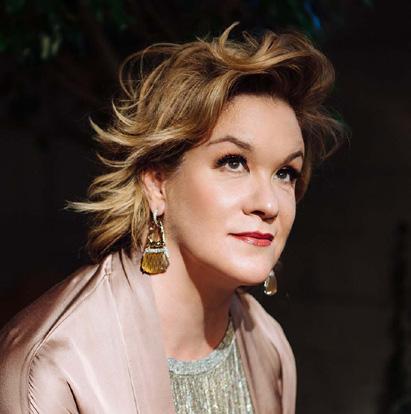
Mezzo-soprano Alice Coote is regarded as one of the great artists of our time. She has performed major roles at the Metropolitan Opera, Glyndebourne, Royal Opera House, Bayerische Staatsoper, Opéra de Paris, Wiener Staatsoper, LA Opera, Lyric Opera of Chicago and Salzburg Festival, and has performed with orchestras including the London Symphony Orchestra, Boston Symphony Orchestra, New York Philharmonic, Chicago Symphony Orchestra, Kammerphilharmonie Bremen, The Hallé and Royal Concertgebouw Orchestra.
Engagements in the 2023/24 season include Storgé Jephtha at the ROH, Mahler Symphony No3 with Robin Ticciati and the London Philharmonic Orchestra and Michael Tilson Thomas and the Danish National Symphony, and Beethoven Symphony No9 and Mass in C Minor with Sir John Eliot Gardiner and the Monteverdi Choir and Orchestra.
Coote’s recent operatic engagements include Madame de Croissy Dialogues des Carmélites (Metropolitan Opera), title role Agrippina (Staatsoper Hamburg ) and Mère Marie Dialogues
des Carmélites (Opernhaus Zürich). On the concert stage, recent engagements include Cassandra in concert performances of Les Troyens with Dinis Sousa and the Monteverdi Choir and Orchestra at the BBC Proms, Elgar Sea Pictures with the Philharmonia and Dinis Sousa, and Mahler Das Lied von der Erde with the Orchestra dell’Accademia Nazionale di Santa Cecilia.
Driven by her passion for exploring and challenging gender stereotypes in characterisation, Coote is renowned for her interpretations of some of opera’s most important male and female roles, including title role Carmen, Dorabella Così fan tutte, Lucretia The Rape of Lucretia, Octavian Der Rosenkavalier, Orfeo Orfeo ed Euridice, Poppea/Nerone L’incoronazione di Poppea, Hänsel Hänsel und Gretel, Sesto Giulio Cesare, Ruggiero Alcina and title role Ariodante
The recital platform is central to Coote’s musical life, and she has performed throughout the UK, Europe and the US. Committed to audience development and redefining genre barriers, this season she premiered her latest project, The Rebellious Recital, including songs by Mahler, David Bowie, Joni Mitchell, Bach and John Lennon, at the Wigmore Hall.
A critically acclaimed recording artist, Coote’s extensive catalogue includes Mahler Song Cycles (Pentatone); Songs by Schumann and Mahler (EMI); Handel’s Messiah and Mahler Symphony No2 (EMI); Angel The Dream of Gerontius and The Apostles (Hallé); Composer Ariadne auf Naxos (Chandos); Handel Arias (Hyperion); The Power of Love: An English Songbook (Hyperion); Schubert’s Winterreise (Wigmore Hall Live); and Mahler’s Das Lied von der Erde (Pentatone).
In 2018 she was awarded an OBE for services to music.
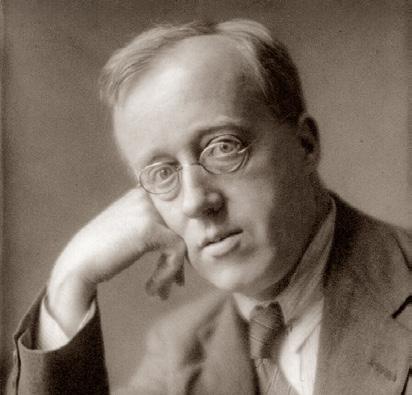
FIRST PERFORMANCE
London, 29 September 1918
DURATION 51 minutes
Mars, the Bringer of War
Venus, the Bringer of Peace
Mercury, the Winged Messenger
Jupiter, the Bringer of Jollity
Saturn, the Bringer of Old Age
Uranus, the Magician
Neptune, the Mystic
‘My pet vice’ was how Gustav Holst described his interest in astrology. However, while he enjoyed casting horoscopes for his friends, his fascination with the stars was more than just an amusing pastime. He once admitted, ‘As a rule, I only study things which suggest music to me’, and the zodiac-themed orchestral suite suggested to him by this ‘vice’ became the work that made his name.
Holst had certainly waited long enough for his name to be made. When he composed The Planets, between 1914 and 1916, he had already composed a few notable works such as the St Paul Suite and the Hymn to Rig-Veda. However, he was still living in relative obscurity as a music teacher, much to the frustration of his great friend Ralph Vaughan Williams. Although Adrian Boult conducted a performance of the suite for an invited audience in London’s Queen’s Hall in 1918, the work didn’t receive its public premiere until 1920. However, this performance, under the baton of Eric Coates with the London Symphony Orchestra, catapulted the 46-year-old composer to fame. Small wonder, too. It’s a spectacular, vividly coloured work in which brash, driving movements are contrasted with movements of such soft, remote otherworldliness that they feel like musical meditations.
The seven short tone poems that make up the suite are musical representations of the astrological signs associated with each particular planet. However, there’s no programme as such to each movement – it’s more about each astrological character’s musical suggestiveness.
The work begins with Mars, the Bringer of War and, although he made his sketches for the movement before the First World War broke out, it can be no coincidence that this thunderous, cataclysmic opener was written as the horrors of the conflict played out. Holst himself was declared unfit for active service and, although
at the end of the war the YMCA offered him the post of Musical Organiser in their educational work among the troops in the Near East, he spent the majority of the hostilities watching in frustration as his friends and family left to serve. The movement is characterised by its relentless, entirely inhuman barbarity. There is no feeling, but simply dispassionate, mechanised destruction. Low and menacing at its start, with five beats to a bar, a machine gun-like persistent rhythm – a martial field drum rhythm – is rapped out by the timpani’s wooden sticks and the strings in their lowest registers using the wood of their bows. Then, over the top, enter the brass and woodwind, uttering the main chromatic motif, which moves upwards in cold blocks of sound. After a build-up, a doom-laden low chord halts proceedings, before a slower, equally menacing, section still haunted by a drum rapping. Then, the allegro returns and whips the energy up to a ferocious climax.
The contrast between Mars and Venus, the Bringer of Peace couldn’t be greater. A solo French horn opens the movement with four ascending notes, answered by chords from the flutes and oboes. After the deep, low registers of the previous movement, the sound range of Venus is higher, creating the impression of the heavens. Gently undulating strings, beautiful violin and oboe solos, and the first appearance of the celeste in the work, create a gentle, dreamlike and mystical-sounding respite in which chamber-weight textures are juxtaposed with late-Romantic fullness, although the tone itself remains coolly remote and serene.
With Mercury, the Winged Messenger, the pace picks up again, although not the volume. Associated by Holst with the process of human thought, Mercury is depicted by light, darting, quicksilver woodwind and string runs, ringing celeste, and play between contrasting rhythms and keys. A solo motif passes from the violin to
the oboe, flute and celeste, and is then taken up by the orchestra in a delicious, animated climax before the volume drops once more, and there’s further development. The music eventually disappears into a final, gossamer-weight pianissimo (very quiet) chord.
Holst’s friendship with Vaughan Williams is in full musical play for Jupiter, the Bringer of Jollity Set in the happy key of C Major, it begins with a hearty, folky stomp of rushing strings, triumphant brass and a syncopated, dance-like melody. A triumphant slower second theme is introduced by the horns, in three-time, the woodwind and strings sparkling all around it. Then, out of nowhere and yet feeling absolutely right, comes the majestic, hymn-like tune we know as I Vow to Thee My Country, in unison low strings and horns supported by a solid chordal accompaniment. The words were written in 1921 by the British diplomat Cecil Spring-Rice in honour of those who fell in the First World War, and Holst was soon asked to adapt his music to fit them. The movement builds to a glittering climax in which the separate sections and styles are melded together to achieve what could be described as patriotic perfection.
Saturn, the Bringer of Old Age was described by Holst as conveying not so much the physical decay of old age, but a vision of fulfilment. As a result, the music moves from the uncertainty of birth – hollow opening chords with a troubled motif in the double basses below – through the struggles of maturing, to the onset of wisdom, which is depicted by a tuba theme. The movement’s conclusion is one of serenity, and acceptance of old age.
Uranus, the Magician is depicted as a consummate showman. The music is lopsided, jocular and a bit coarse. It’s a showpiece for orchestral virtuosity and brightness, with its chopping, changing rhythms – imagine a stage act full of panache, bravado and mystery.
The title of the final movement says it all: Neptune, the Mystic. When Holst wrote The Planets, Neptune was the newest discovered planet, having been first seen in 1846. Invisible to the naked eye, Neptune represented distance and mystery to Holst, and indeed to others too. In astrology, the name is associated with confusion, and mystic connection with other worlds. The resultant music offers us dispassionate, disembodied meditations, drifting across the heavens. Actual melodies don’t really feature. In their place are mysterious fragments, always hushed, reverent and sonorous. The orchestra is joined in the final section by a wordless chorus of women’s voices, almost imperceptibly at first on a high G sustained across 11 bars. The orchestra then fades out, leaving nothing but the voices, echoing again and again a repeated cadence, and gradually drifting away into nothing.
©
Charlotte GardnerListen again to the RSNO
Holst
The Planets
Conductor Sir Alexander Gibson
More information
rsno.org.uk/recordings
Gustav Holst was a member of the orchestra we now know as the RSNO from 1900 until 1904. Living in Glasgow digs during the winter months, he played 2nd Trombone for four subscription seasons, performing with artists such as Richard Strauss, Henry Wood and Fritz Kreisler. Holst once commented that he learned the art of writing for orchestra from the ‘inside out’, likely referring to his years in Scotland and evident in his masterful use of instrumental and musical colour in The Planets. As true today as it was 120 years ago, life as a professional musician involves many hours travelling, and with ample time on the Scottish trains to read his favourite subject of theosophy and learn Sanskrit, Holst may already have been developing ideas of astrology and mythology that would later inspire his Planets Suite.
Selected movements from The Planets were first heard in Scotland in St Andrew’s Hall, Glasgow in 1922, conducted by Julius Harrison, and the first complete performance of the work in Scotland was in 1926, again in St Andrew’s Hall, under the baton of the composer and broadcast live on station 5SC, the Glasgow station of the British Broadcasting Company.
© Ewen McKay
Queen guitarist Brian May chose Sir Alexander Gibson’s recording of The Planets as his Castaway’s Favourite when he appeared as a guest of Sue Lawley on BBC Radio 4’s Desert Island Discs in 2002.
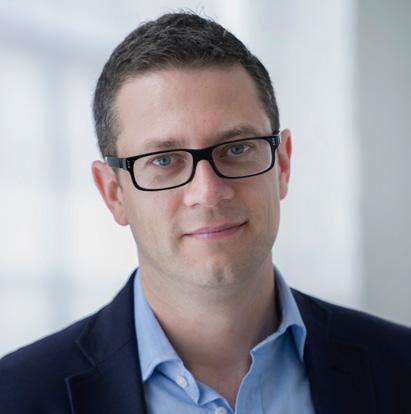
John Wilson is in demand at the highest level across the globe, having conducted many of the world’s finest orchestras over the past 30 years. In 2018 he relaunched Sinfonia of London: described as ‘the most exciting thing currently happening on the British orchestral scene’ (The Arts Desk), Wilson and the Sinfonia’s much-anticipated BBC Proms debut in 2021 was praised as ‘truly outstanding’ (The Guardian) with its ‘revelatory music-making’ (The Times). They are now highly sought-after across the UK, returning to the BBC Proms, Aldeburgh Festival and London’s Barbican Centre among other festivals and venues this season.
Wilson’s large and varied discography with Sinfonia of London has received near-universal critical acclaim, and in the autumn of 2023 they released their 17th album in five years. Their recordings have earned several awards, including, for three successive years, the BBC Music Magazine Award in the Orchestral category for the Korngold Symphony in F sharp (2020), Respighi Roman Trilogy (2021) and Dutilleux Le Loup (2022) recordings. The Observer described the Respighi recording as ‘Massive, audacious and vividly played’, and The Times declared it one of the three ‘truly outstanding accounts of this trilogy’ of all time, after those by Toscanini (1949) and Muti (1984).
Born in Gateshead, John Wilson studied composition and conducting at the Royal College of Music where, in 2011, he was made a Fellow. In 2019 he was awarded the prestigious ISM Distinguished Musician Award for his services to music, and in 2021 was appointed Henry Wood Chair of Conducting at the Royal Academy of Music.
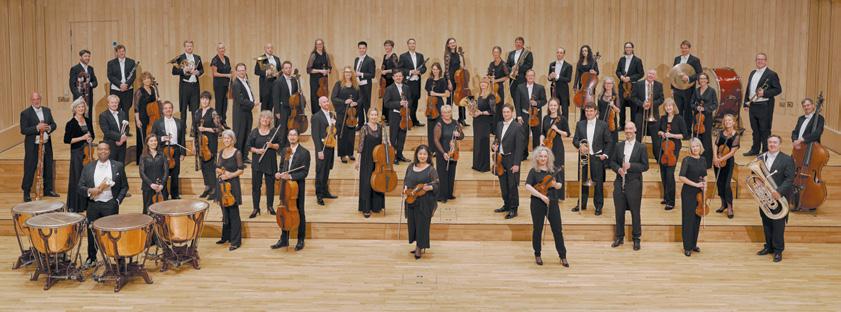
The Royal Scottish National Orchestra is one of Europe’s leading symphony orchestras. Formed in 1891 as the Scottish Orchestra, the company became the Scottish National Orchestra in 1950, and was awarded Royal Patronage in 1977. The Orchestra’s artistic team is led by Danish conductor Thomas Søndergård, who was appointed RSNO Music Director in 2018.
The RSNO is supported by the Scottish Government and is one of the Scottish National Performing Companies. The Orchestra performs across Scotland, including concerts in Glasgow, Edinburgh, Dundee, Aberdeen, Perth and Inverness, and appears regularly at the Edinburgh International Festival and the BBC Proms. The RSNO has made recent tours to the USA, China and Europe.
The RSNO has a worldwide reputation for the quality of its recordings, receiving a 2020 Gramophone Classical Music Award for Chopin’s Piano Concertos (soloist: Benjamin Grosvenor), conducted by Elim Chan, two Diapason d’or awards (Denève/Roussel 2007; Denève/ Debussy 2012) and eight GRAMMY Award
nominations. Over 200 releases are available, including Thomas Søndergård conducting Strauss (Ein Heldenleben, Der Rosenkavalier Suite) and Prokofiev (Symphonies Nos1 and 5); two discs of African American Voices featuring the music of George Walker, William Levi Dawson, Margaret Bonds and more, conducted by Kellen Gray; the complete symphonies of Sibelius (Gibson), Prokofiev (Järvi), Bruckner (Tintner) and Roussel (Denève); as well as further discs championing the music of William Grant Still (Eisenberg), Xiaogang Ye (Serebrier) and Thomas Wilson (Macdonald).
The RSNO’s Engagement strategy, Music for Life, sees the Orchestra work with schools and community groups, connecting its music with the people of Scotland. Since March 2020, the RSNO has created multiple online Engagement programmes and Digital Seasons, ensuring the RSNO continues to bring world-class music to its audiences in Scotland and around the world on stage and on screen.
FIRST VIOLIN
Rebecca Chan
GUEST LEADER
Lena Zeliszewska
ASSOCIATE LEADER
Tamás Fejes
ASSISTANT LEADER
Cheryl Crocket
Veronica Marziano
Ursula Heidecker Allen
Susannah Lowdon
Lorna Rough
Elizabeth Bamping
Liam Lynch
Caroline Parry
Alan Manson
Fiona Stephen
Laura Ghiro
SECOND VIOLIN
Anna Blackmur
GUEST PRINCIPAL
Marion Wilson
Jacqueline Speirs
Kirstin Drew
Nigel Mason
Paul Medd
Harriet Hunter
Anne Bünemann
Sophie Lang
Robin Wilson
Emily Nenniger
Liz Reeves
VIOLA
Felix Tanner
ASSOCIATE PRINCIPAL
Atico Razera
Susan Buchan
Lisa Rourke
Claire Dunn
Maria Trittinger
Francesca Hunt
Beth Woodford
Elaine Koene
Nicola Boag
CELLO
Pei-Jee Ng
PRINCIPAL
Betsy Taylor
Kennedy Leitch
Rachael Lee
Sarah Digger
Robert Anderson
Niamh Molloy
Laura Sergeant
DOUBLE BASS
Pete Fry
GUEST PRINCIPAL
Michael Rae
Moray Jones
Tom Berry
Olaya Garcia Alvarez
Kirsty Matheson
FLUTE
Katherine Bryan
PRINCIPAL
Maïne Pion-Piola
Adam Richardson
Hannah Foster
OBOE
Adrian Wilson PRINCIPAL
Peter Dykes
Henry Clay
PRINCIPAL COR ANGLAIS
Ilid Jones
CLARINET
Timothy Orpen PRINCIPAL
William Knight
Robert Digney
Duncan Swindells
PRINCIPAL BASS CLARINET
BASSOON
David Hubbard PRINCIPAL
Luis Eisen
Emma Simpson
Lucy Gibson
Paolo Dutto
PRINCIPAL CONTRABASSOON
HORN
Lauren Reeve-Rawlings
GUEST PRINCIPAL
Alison Murray
Andrew McLean
Flora Bain
Martin Murphy
Ian Smith
Fergus Kerr
TRUMPET
Christopher Hart PRINCIPAL
Katie Smith
Ben Jarvis
Juliette Murphy
Leo Brychta
TROMBONE
Dávur Juul Magnussen PRINCIPAL
Lance Green
Alastair Sinclair
PRINCIPAL BASS TROMBONE
EUPHONIUM
Christopher Flynn
TUBA
John Whitener PRINCIPAL
TIMPANI
Paul Philbert PRINCIPAL
Tom Hunter
PERCUSSION
Simon Lowdon PRINCIPAL
John Poulter
Philip Hague
Colin Hyson
HARP
Pippa Tunnell
Sharron Griffiths
CELESTE
Lynda Cochrane
ORGAN
Michael Bawtree
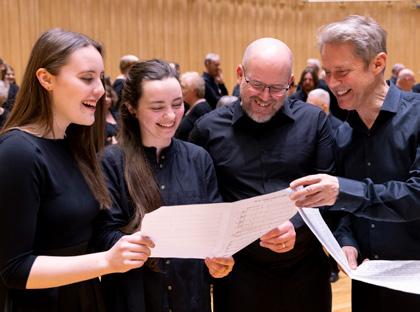
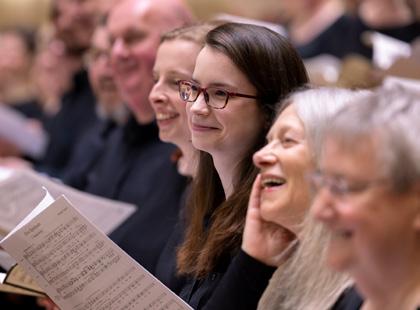

The RSNO Chorus performs in around six different programmes in up to 20 concerts across Scotland with the Royal Scottish National Orchestra each year. The RSNO Chorus has also had great success in recording with the Orchestra. Its recordings, among others, of Prokofiev’s Alexander Nevsky, conducted by Neeme Järvi, and Holst’s The Planets, conducted by David Lloyd-Jones, have both attracted high critical acclaim.
In addition to its commitment to the Orchestra, the RSNO Chorus performs independently and has been invited to perform with orchestras in many parts of the world, establishing an international status and touring to Copenhagen, Hong Kong, Israel, Germany, Belfast, Australia, Trondheim and, most recently, Amsterdam and Prague. In 2018 it performed Britten’s War Requiem with the RSNO at the BBC Proms.
The RSNO Chorus evolved from a choir formed in 1843 to sing the first full performance of Handel’s Messiah in Scotland. Today it is one of the most successful choruses in the UK. In recent years it has performed practically every work in the standard choral repertoire along with contemporary works by renowned composers, including John Adams, Magnus Lindberg, Howard Shore and, most recently, the critically acclaimed Scottish Premiere of Sir James MacMillan’s Christmas Oratorio.
The RSNO Chorus is directed by Stephen Doughty, who was appointed to the role at the start of the 2022:23 Season.
SOPRANO 1
Alison Blair
Rhona Christie
Katie Cochrane
Caroline Cradock
Charlotte McKechnie
Seonaid Eadie
Karman Leung
Maree Mutch
Joanna Webster
Roberta Yule
SOPRANO 2
Lynsey Brook
Mairi Therese Cleary
Laura Gorman
Ruby Ginoris
Helen Hyland
Jennifer Imrie
Carol McLean
Fiona Murray
Judith Pexton
Lizzie Reather
Lynsey Scott
Lorna Robertson
Elspeth Waugh
ALTO 1
Steve Halfyard
Laura MacDonald
Ailie MacDougall
Anne Murphy
Katharine Oyler
Fiona Taylor
Ruth Townsend
Brenda Williamson
ALTO 2
Alice Bennett
Gillian Downie
Denny Henderson
Hilde McKenna
RSNO CHORUS DIRECTOR
Stephen Doughty
RSNO CHORUS VOCAL COACH
Polly Beck
RSNO CHORUS REHEARSAL PIANIST
Edward Cohen
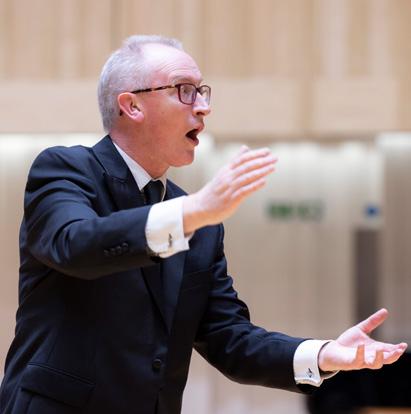
Stephen Doughty was appointed Chorus Director of the RSNO Chorus from the start of the 2022:23 Season. Prior to this appointment, during his 12-year tenure as Chorus Master of Belfast Philharmonic Choir the choir gave a number of world premieres, including James Whitbourn’s The Seven Heavens and Philip Hammond’s Requiem for the Lost Souls of the Titanic (performed exactly 100 years since the liner went down), and the European premieres of both Stuart Scott’s Requiem Brevis, which saw the 100-strong choir separated into eight choirs spaced around the audience, and Christopher Marshall’s Earthsong
Stephen particularly enjoys working with amateur singers. He has been Musical Director of Edinburgh Bach Choir since 2017 and of the Garleton Singers since 1994. He was also Organist and Director of Music of St John’s Episcopal Church, Edinburgh for 18 years, directing the 30-voice choir through the full range of sung services, which included largescale, orchestrally-accompanied services during the Edinburgh Festival.
He plays harpsichord/organ continuo and orchestral piano with all the Scottish orchestras, as well as the Ulster Orchestra, and has given frequent organ recitals, including several on the grand Mulholland Organ in the Ulster Hall, Belfast.
Stephen has compiled a large portfolio of arrangements and orchestrations, particularly for young voices, and has received commissions from Children’s Classic Concerts, the Ulster Orchestra and the RSNO. In addition, the BBC has commissioned a number of arrangements which have been performed on BBC Alba and at the Last Night of the Proms, and his pieces feature on several recordings. More information about his arrangements, including commissions, can be found at stephendoughty.co.uk
Stephen is an Examiner for the Associated Board of the Royal Schools of Music.
Stephen is unfortunately unable to be present at The Planets concerts, but is delighted that Nick Jones has kindly agreed to step in at short notice to conduct the Offstage Chorus, for which we are very grateful.
Isio


are delighted to sponsor the RSNO’s performances of Holst’s The Planets
Over the past 20 years Isio have been working closely with our Scottish clients, providing expertise in Actuarial & Consulting, Pensions Administration, Investment Advisory, Reward & Benefits and Wealth Planning.
Over the past 20 years Isio have been working closely with our Scottish clients, providing expertise in Actuarial & Consulting, Pensions Administration, Investment Advisory, Reward & Benefits and Wealth Planning.
Over the past 20 years Isio have been working closely with our Scottish clients, providing expertise in Actuarial & Consulting, Pensions Administration, Investment Advisory, Reward & Benefits and Wealth Planning.
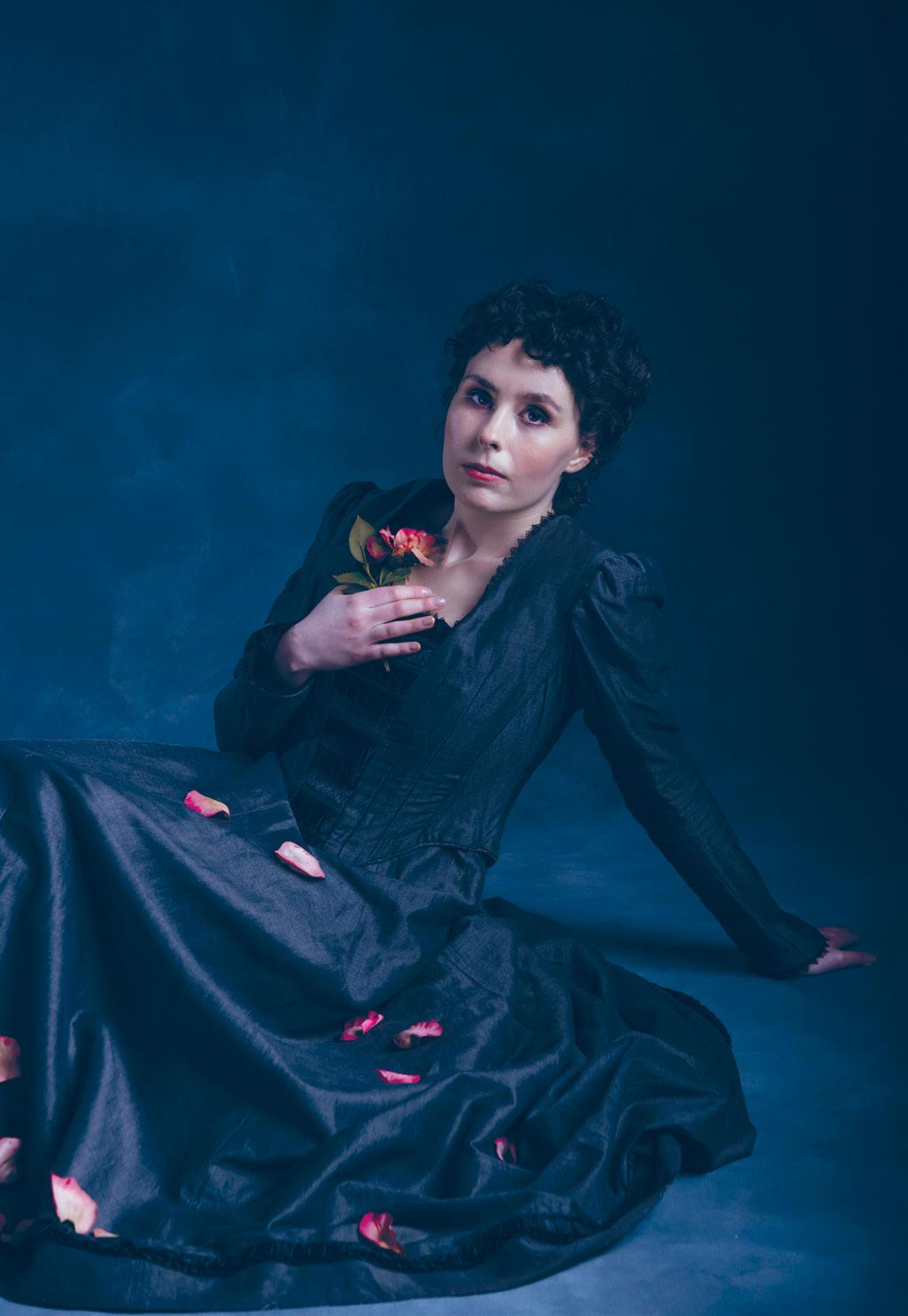
Heady passion in the heart-rending classic
Theatre Royal Glasgow
8 – 18 May 2024
Eden Court, Inverness 23 & 25 May
His Majesty’s Theatre, Aberdeen 30 May & 1 June
Festival Theatre Edinburgh
7 – 15 June
Book now scottishopera.org.uk
At the RSNO we believe music has the power to enrich lives and support the wellbeing of our community.
Here is just a snapshot of the incredible projects we deliver across Scotland. Support us by donating to our Play Your Part appeal and you will help us share transformative musical experiences.

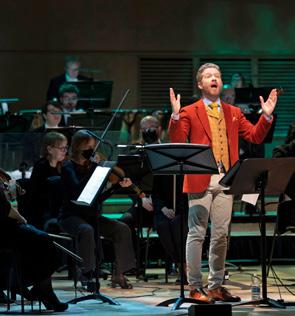

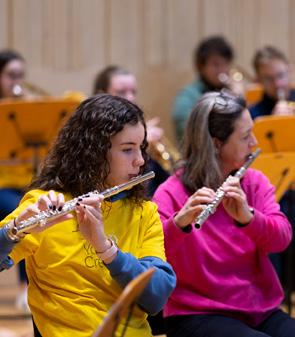
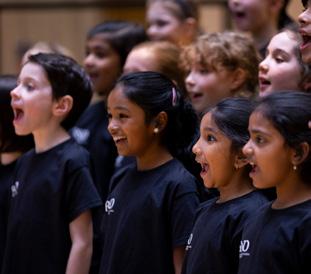

Simply scan the QR code to donate or visit rsno.org.uk/playyourpart to help us bring music to concert halls, classrooms, communities and care homes.
Featuring music from Bernstein’s West Side Story, Herrmann’s Vertigo, Gershwin’s Rhapsody in Blue, Grieg’s Peer Gynt and Ellington’s Black and Tan Fantasy.
Fri 3 May 7.30pm GLASGOW
Sat 4 May 7.30pm
Bertie Baigent Conductor
Makoto Ozone Piano Scottish National Jazz Orchestra

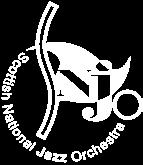
Kindly supported by Daiwa Anglo-Japanese Foundation and The Great Britain Sasakawa Foundation

I am honoured and extremely proud to be Music Director of the RSNO. It is through the continued generosity of you, our friends, donors and supporters, that we can continue to achieve and realise the most ambitious goals of the Orchestra.
One of the wonders of the RSNO is how it brings high-quality music not only to concert halls, but to the wider community. From hospital settings to care homes, from our Astar app for families with newborns to our National Schools Concert Programme, our music touches so many lives in Scotland and beyond. Your support is the
RSNO Benefactors are beacons of philanthropic inspiration, providing truly transformative financial support to the Orchestra that enables us to build and deliver long-term strategic plans. Benefactors share the RSNO’s vision for orchestral music and work with us to drive
cornerstone of all that we do, as it allows us to continually build and develop.
Thank you for being part of this wonderful Orchestra’s journey, as we adapt and grow towards a bright future.
 Thomas Søndergård MUSIC DIRECTOR, RSNO
Thomas Søndergård MUSIC DIRECTOR, RSNO
the organisation forward, helping us to realise our future plans and ambitions.
Sir Ewan and Lady Brown
Gavin and Kate Gemmell
Kat Heathcote and Iain Macneil
Ms Chris Grace Hartness
The RSNO Conductors’ Circle is an inspirational group of individual supporters at the heart of the RSNO’s Individual Giving programme. Our members’ annual philanthropic gifts enable us to realise the Orchestra’s most ambitious goals. Conductors’ Circle members support inspirational concert performances for our audiences alongside transformational education programmes in communities across Scotland, via our ground-breaking initiative Music for Life.
The RSNO is very grateful for the continued support of its Conductors’ Circle:
Ardgowan Charitable Trust
Geoff and Mary Ball
Stina Bruce Jones
Ian and Evelyn Crombie
Kenneth and Julia Greig
Carol Grigor and the Trustees of Dunard Fund
Bruce and Caroline Minto
David and Alix Stevenson
Eric and Karen Young
We would also like to thank those generous donors who wish to remain anonymous.
CHAIR PATRON
From musical activities in schools with the musicians of the future to working in community venues across Scotland, as a Chair Patron you are enabling RSNO musicians to explore the many facets of their art and the positive impact it has on people’s lives. Supporting an individual musician puts you at the heart of the RSNO family. You’re connected directly to the musicians on stage and get to enjoy privileged behind-the-scenes access. RSNO musicians truly appreciate our Chair Patrons and enjoy developing personal relationships with our supporters.
Assistant Conductor
Derrick Morgan
The Solti Foundation Chair
First Violin
Maya Iwabuchi LEADER Dunard Fund Chair
Tamás Fejes ASSISTANT LEADER
The Bill and Rosalind Gregson Chair
Ursula Heidecker Allen
The James and Iris Miller Chair
Elizabeth Bamping
The WL and Vera Heywood Chair
Alan Manson
The Hugh and Linda Bruce-Watt Chair
Lorna Rough
The Hilda Munro Chair
Liam Lynch
Mr Kyle Anderson Weir
Second Violin
Marion Wilson
ASSOCIATE PRINCIPAL
The Nigel & Margot Russell Chair
Sophie Lang
The Ian & Evelyn Crombie Chair
Emily Nenniger
Mr Jamie & Kyle Anderson Weir
Viola
Tom Dunn PRINCIPAL
The Cathy & Keith MacGillivray Chair
Lisa Rourke SUB PRINCIPAL
The Meta Ramsay Chair
Francesca Hunt
The Rolf and Celia Thornqvist Chair
Cello
Pei-Jee Ng PRINCIPAL
Mr Jamie & Kyle Anderson Weir
Betsy Taylor
ASSOCIATE PRINCIPAL
The Maxwell Armstrong Chair
Kennedy Leitch
ASSISTANT PRINCIPAL
The David and Anne Smith Chair
Rachael Lee
The Christine and Arthur Hamilton Chair
Double Bass
Michael Rae
ASSISTANT PRINCIPAL
James Wood Bequest Fund Chair
With thanks to the Gregor Forbes
John Clark Chair for their support of the RSNO Double Bass section
Flute
Katherine Bryan PRINCIPAL
The David & Anne Smith Chair
Oboe
Adrian Wilson PRINCIPAL
The Hedley Wright Chair
Peter Dykes
ASSOCIATE PRINCIPAL
Witherby Publishing Group Charitable Trust Chair
Cor Anglais
Henry Clay PRINCIPAL
In memory of a dear friend, Fiona H
Clarinet
Timothy Orpen PRINCIPAL
The Shirley Murray Chair
Horn
PRINCIPAL
The Springbank Distillers Chair
Alison Murray
ASSISTANT PRINCIPAL
Mr & Mrs Pierre and Alison Girard
Martin Murphy
ASSISTANT PRINCIPAL
The Gordon Fraser Charitable Trust Chair
David McClenaghan
The J & A Mitchell Chair
Trumpet
Christopher Hart PRINCIPAL
Ms Chris Grace Hartness
Trombone
Dávur Juul Magnussen
PRINCIPAL
The Mitchell’s Glengyle Chair
Lance Green
ASSOCIATE PRINCIPAL
The William Cadenhead Chair
Timpani
Paul Philbert PRINCIPAL
Ms Chris Grace Hartness
Percussion
John Poulter
ASSOCIATE PRINCIPAL
The Dot and Syd Taft Chair
We would like to acknowledge the great support of the RSNO Chair Patron Programme by Mr Hedley G Wright. We are also grateful to those who give but who wish to remain anonymous.
Our range of Learning & Engagement work is huge. From apps for babies to our free National Schools Concert Programme; community orchestras to professional development programmes; digital care packages for care homes and our pioneering Generations projects. The RSNO aims to provide a lifetime of music. Becoming a Patron will bring you closer to the communities we serve across Scotland and provide vital support for this crucial work.
William Brown, W.S
The Dundee RSNO Circle Committee
Members of the Glasgow RSNO Circle
Neil & Nicola Gordon
Professor Gillian Mead, FRSE
Maurice & Nicola Taylor Charitable Trust
The RSNO is dedicated to bringing new works and outstanding new talent to audiences across Scotland. Our New Works Patrons contribute a significant legacy to orchestral music that extends beyond the RSNO, providing new music for orchestras and audiences around the world – for generations to come.
New Works Patron
Susie Thomson
We are also grateful to those who give but wish to remain anonymous.
If you would like more information or would like to discuss how you can become part of the RSNO Family of Supporters, please contact Jane Donald, Director of External Relations, at jane.donald@rsno.org.uk
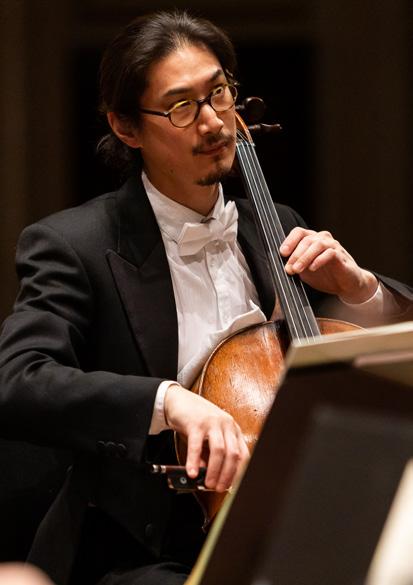
We would like to thank all those who continue to generously support the RSNO’s Play Your Part Appeal.
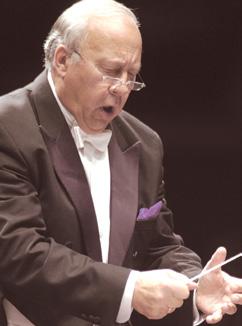

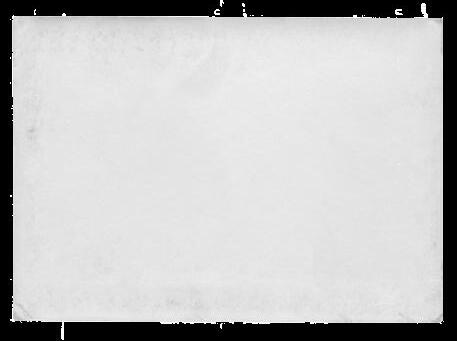
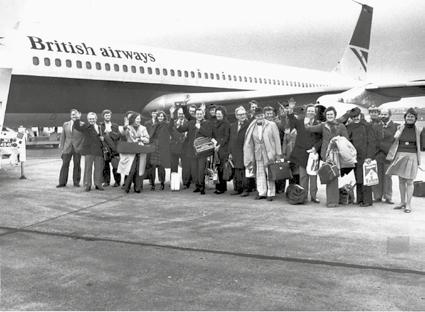
Leave a gift to the RSNO and ensure future generations can create their own Musical Memories of the Royal Scottish National Orchestra.
We all have special Musical Memories. It could be learning to play an instrument when you were a child, or a special piece of music that just left you breathless the first time you heard the Orchestra play it. Maybe it was seeing a soloist you had always wanted to hear, or just a great concert shared with friends. Memories such as these make music such an important part of our lives.
Leaving a gift to the RSNO in your will is the single most important way you can help us to make music and to create memories. Your legacy will support the work of the Orchestra for years to come, ensuring that we can continue to bring great music to a new generation of children, young people and adults right across Scotland.
It is easy to leave a gift. After you have made provisions for family and friends, please think of the Orchestra.
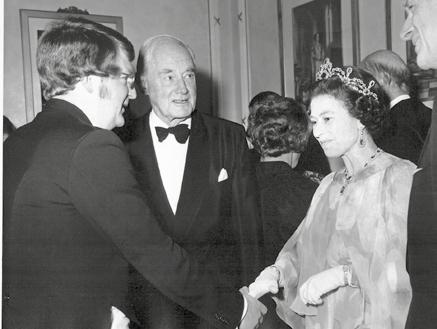
Your gift is important to us and to everyone in Scotland who enjoys music. Contact your solicitor to draft a will or add a codicil to your current will.
If your estate is subject to inheritance tax, a gift to a charity, such as the RSNO, is tax-free and will reduce the amount of tax payable to the Government. Please ask your solicitor for details.

For more information please visit rsno.org.uk/memories
If you would like to discuss this further, please contact Torran McEwan, Individual Giving and Partnerships Officer, in the strictest confidence, at torran.mcewan@rsno.org.uk
To the many among you who have pledged to leave a gift already – thank you.
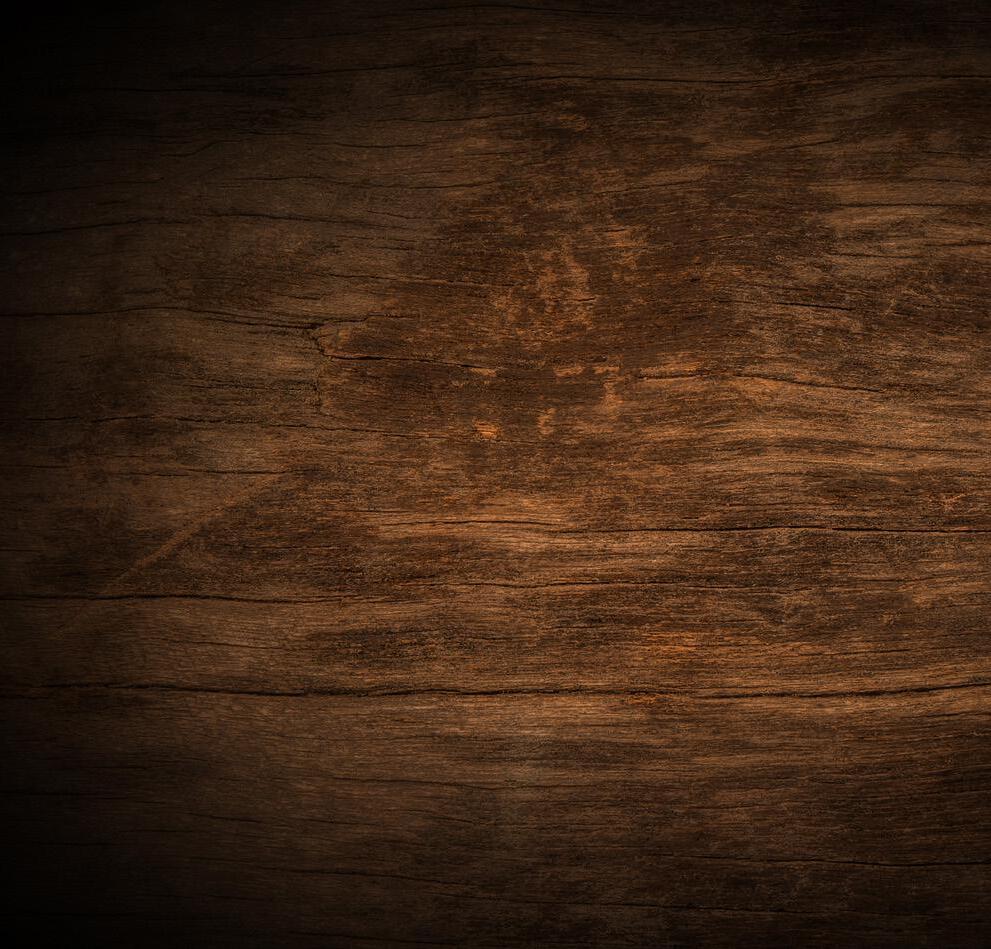

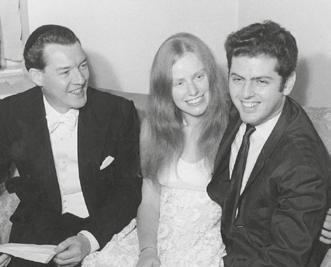
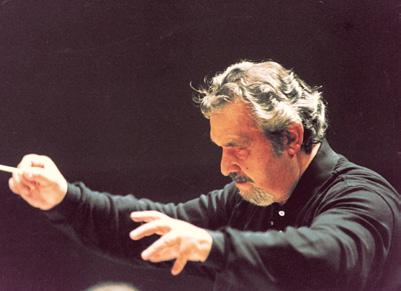
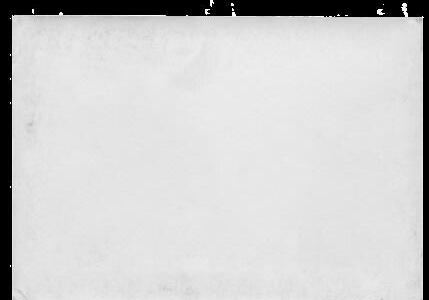
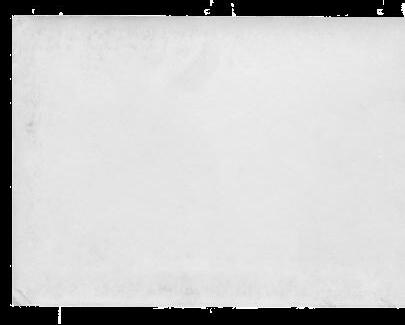
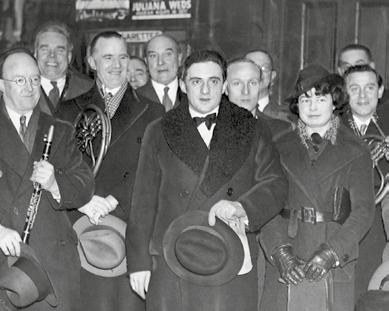
Charitable trusts and foundations have a distinguished history of supporting the RSNO, both on and off stage. From one-off donations for specific projects to multi-year funding for our flagship outreach initiatives, including the National Schools Concert Programme and Young Creatives, every grant in support of our work is truly appreciated. We are grateful to the following trusts and foundations for their generosity:
Aberdeen Endowments Trust
ABO Sirens Fund
Adam Mickiewicz Institute
Alexander Moncur Trust
Alma & Leslie Wolfson Charitable Trust
Balgay Children’s Society
Bellahouston Bequest Fund
The Bliss Trust
The Boris Karloff Charitable Foundation
Brownlie Charitable Trust
The Castansa Trust
CMS Charitable Trust
The Common Humanity Arts Trust
Cruden Foundation
The David and June Gordon Memorial Trust
The D’Oyly Carte Charitable Trust
Dr Guthrie’s Association
The Dunclay Charitable Trust
The Edgar E Lawley Foundation
The Educational Institute of Scotland
The Ettrick Charitable Trust
Fidelio Charitable Trust
Forteviot Charitable Trust
The Gaelic Language Promotion Trust
The Gannochy Trust
The Gordon Fraser Charitable Trust
Harbinson Charitable Trust
Hope Scott Trust
The Hugh Fraser Foundation
James Wood Bequest Fund
Jean & Roger Miller’s Charitable Trust
Jennie S Gordon Memorial Foundation
Jimmie Cairncross Charitable Trust
John Scott Trust Fund
The Jones Family Charitable Trust
Nancie Massey Charitable Trust
New Park Educational Trust
The Noel Coward Foundation
Northwood Charitable Trust
The Nugee Foundation
P F Charitable Trust
The PRS Foundation
Pump House Trust
Q Charitable Trust
The R J Larg Family Trust
The Ronald Miller Foundation
The Rowena Alison Goffin Charitable Trust
The Scops Arts Trust
Scott-Davidson Charitable Trust
The Solti Foundation
Souter Charitable Trust
The Steel Charitable Trust
Stevenston Charitable Trust
Sylvia Aitken’s Charitable Trust
Tay Charitable Trust
Thomson Charitable Trust
Tillyloss Trust
Vaughan Williams Foundation
Verden Sykes Trust
W A Cargill Fund
Walter Scott Giving Group
Walton Foundation
The Wavendon Foundation
William S Phillips Fund
The William Syson Foundation
The W M Mann Foundation
W M Sword Charitable Trust
The Zich Trust

JTH Charitable Trust

Leach Family Charitable Trust
Leng Charitable Trust
Lethendy Charitable Trust
Mary Janet King Fund (FS Small Grants)
McGlashan Charitable Trust
MEB Charitable Trust
The Meikle Foundation
Mickel Fund
Miss E C Hendry Charitable Trust
The Music Reprieval Trust
We are also grateful to a number of trusts that wish to stay anonymous.
If you would like more information about our work and how you can make a difference, please contact Kirsten Reid, Trusts and Projects Coordinator, at kirsten.reid@rsno.org.uk
Our Circle members are a vital part of the RSNO family. You, our community of music-lovers, inspire and support us. To all our existing Circle members, thank you. Your unwavering support allows us to continue bringing the joy of music to all across Scotland.
When you join the RSNO Circle you gain access to exclusive benefits such as priority single ticket booking, our exclusive Inner Circle magazine, the RSNO Circle e-newsletter and invitations to special events such as Open Rehearsals. You also help us to bring music to so many people, from children attending our free schools concerts to people in care homes watching our digital care packages. To find out more about joining the Circle please visit rsno.org.uk/circle or get in touch with Polly Lightbody, Individual Giving and Partnerships Officer, at polly.lightbody@rsno.org.uk
Virtuoso
Ms Catherine Y Alexander
Mrs A M Bennett
Mr Alan and Mrs Carolyn Bonnyman
Dame Susan and Mr John Bruce
Stephen and Morny Carter
Francesca and Eoghan Contini
Mackie
Sir Sandy and Lady Crombie
Gavin and Kate Gemmell
Dr M I and Mrs C R Gordon
Scott and Frieda Grier
Judith and David Halkerston
Iain MacNeil and Kat Heathcote
Miss A McGrory
Miss M Michie
Mr James Miller CBE
Mrs Abigail Morrison
Nicholas and Alison Muntz
Meta Ramsay
Mr George Ritchie
Mr and Mrs W Semple
Mr Ian Taft
Claire and Mark Urquhart
Raymond and Brenda Williamson
Margaret Duffy and Peter Williamson
William and Elizabeth Berry
Mr John Brownlie
Miss L Buist
Mr A Campbell
Dr K Chapman and Ms S Adam
Mr I Gow
Mr J D Home
Professor J and Mrs S Mavor
Mrs A McQueen
Mr Miller
Mr Iain Percival
Mr and Mrs David Robinson
Mr A Alstead
Miss D Blackie
Mr L Borwick
Neil and Karin Bowman
Dr C M Bronte-Stewart
Dr F L Brown
Mr and Mrs Burnside
David Caldwell
Ms H Calvert
Ross Cavanagh
Myk Cichla
Dr J Coleiro
Mr and Mrs B H Cross
Christine and Jo Danbolt
Mr P Davidson
Steven J Davis
Mr J Diamond
Mr S Dunn
Mr C Ffoulkes
Mr W G Geddes
Mr and Mrs M Gilbert
Lord and Lady Hamilton
Mrs S Hawthorn
P Hayes
Dr and Mrs P Heywood
Ms H Kay
Mr and Mrs W Kean
Nicholas Kilpatrick
Christine Lessels
Mr R M Love
Mr D MacPherson
Mrs K Mair
Mr and Mrs Marwick
Mr S Marwick
Mr and Mrs G McAllister
Dr A H McKee
Mr Rod McLoughlin
Morag Miller
Mrs B Morinaud
Dr and Mrs D Mowle
Mr K R and Dr C C Parish
Ms A and Miss I Reeve
Mrs E Robertson
Miss L E Robertson
Dr and Mrs G K Simpson
Norma and Duncan Smith
Mr and Mrs A Stewart
Mrs M Stirling
David and Helen Strachan
Mr G Stronach
Dr G R Sutherland
Mr I Szymanski
Mr and Mrs J B Watson
Mr and Mrs D Weetman
Mr and Mrs Chris and Jane Wood
Mr and Mrs Zuckert
Sonata
Mr K Allen
Dr A D Beattie
Jenny Beattie
Mrs H Benzie
Mr R Billingham
Lord and Lady Borthwick
Rev P Boylan
John Bradshaw and Shiona Mackie
Mrs Bryan
Mrs C Campbell
Miss S M Carlyon
Lady Coulsfield
G Cruickshank
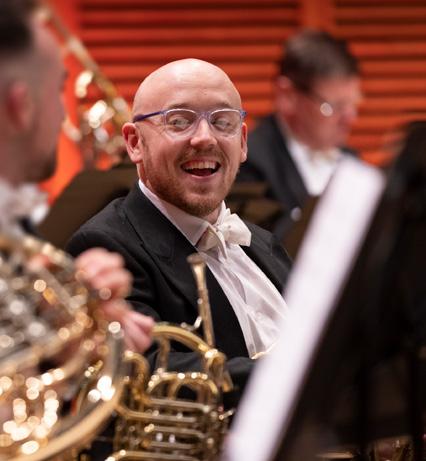
Adam and Lesley Cumming
Dr J K and Mrs E E Davidson
Mr and Mrs K B Dietz
Mrs C Donald
J Donald and L Knifton
Colin Douglas
Mr John Duffy
Mr and Mrs M Dunbar
Mr R M Duncan
Brigadier and Mrs C C Dunphie
Mrs E Egan
Mr R Ellis
Mr R B Erskine
Dr E Evans
Mr D Fraser
Ms J Gardner
Philip and Karen Gaskell
Mr D Gibson
Mrs M Gibson
Mr and Mrs A Gilchrist
Mrs M Gillan
Mrs J K Gowans
Dr J and Mrs H Graham
Professor and Mrs A R Grieve
Dr P J Harper
Dr N Harrison
Mr and Mrs R J Hart
Ms V Harvey
Bobby and Rhona Hogg
Ms J Hope
Mr R Horne
Mr and Mrs F Howell
Mrs A Hunter
Professor R N Ibbett
Mr A Kilpatrick
Professor and Mrs E W Laing
Ms K Lang
Dr D A Lunt
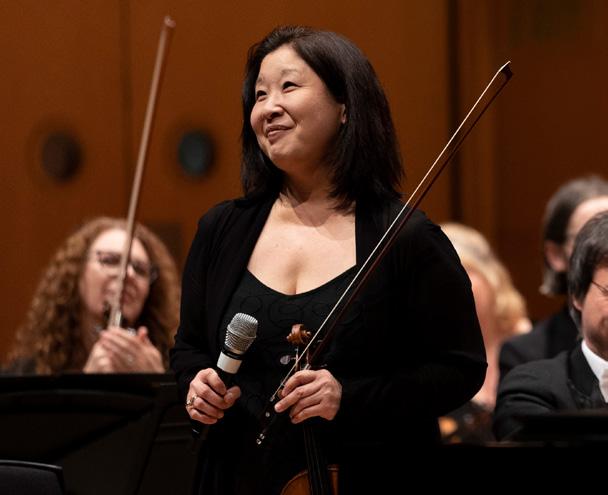
Dr A K and Mrs J C Martin
Mr and Mrs J Martin
Ms S McArthur
Mr G McCormack
Gavin and Olive McCrone
Mrs M McDonald
Ms M McDougall
Mr M McGarvie
Dr Colin McHardy
Ms H L McLaren
Margaret McLay
Mrs E McLean
Mr D McNaughton
Mr and Mrs B Mellon
Mr I Mills
Mrs P Molyneaux
Mr B Moon
Kenneth M Murray
Alyson Murray
Mr B and Mrs C Nelson
Mr and Mrs K O’Hare
Mr and Mrs K Osborne
Dr G Osbourne
Mr A Ownsworth
Tanya and David Parker
Mr R Parry
Misses J and M Penman
Mr J W Pottinger
Miss J A Raiker
Mr M Rattray
Ms F Reith
Mrs D A Riley
Dr and Mrs D Robb
Mrs A Robertson
Anne Robertson
Ms A Robson
Sheriff Linda Ruxton
David Scott
Mrs S Scott
Mrs J Shanks
Mr J A Shipley
Dr M J and Mrs J A Shirreffs
Richard and Gillian Shirreffs
Mr E Simmons and Mrs R Nicolson
Mrs E Smith
Mr M Smith
Dr and Mrs B Stack
Mrs Lorna Statham
Mrs T Stevenson
Mrs R F Stewart
Rev N and Mr R Stewart
Mr and Mrs B Tait
Dr and Mrs T Thomson
Mr C Turnbull
Dr Morag Ward
Nelson and Barbara Waters
Mr W Watters
Alan Weddell
Mr G West
Miss M Whitelaw
Philip Whitley and Robert H Mackay
Dr and Mrs D T Williams
Mr D Woolgar
Roderick Wylie
Mr R Young
Thank you to all our members of the Circle, including those who wish to remain anonymous. Every one of you makes a real difference.

PRINCIPAL MEDIA PARTNER
CHARITY PARTNER
Alzheimer Scotland
• Black Lives in Music




PRINCIPAL TRANSPORT PARTNER
CORPORATE SUPPORTERS PARTNERS
Glasgow Chamber of Commerce

BROADCAST PARTNER
• Institute of Directors
The Scottish Council for Development & Industry
PROJECT PARTNERS
• Children’s Hospice Association
• Scots Magazine
• Smart Graphics
• Children’s Classic Concerts • Classic FM • Douglas Academy
Dunedin Consort • Education Scotland • Gig Buddies • Goethe-Institut Glasgow • Hebrides Ensemble • Luminate Music Education Partner Group • ParentZone • Royal Conservatoire of Scotland • Scottish Book Trust • Scottish Refugee Council
Sistema Scotland • St Mary’s Music School • Starcatchers • Tayside Healthcare Arts Trust • The Scottish Wildlife Trust University of Edinburgh • V&A Dundee • Visible Fictions
CHAIR SPONSORS FUNDERS

If you would like more information about sponsorships, corporate partnerships or fundraising events with the RSNO, please contact Jane Donald, Director of External Relations, at jane.donald@rsno.org.uk
RSNO BOARD OF DIRECTORS
Elected Directors
Dame Susan Bruce DBE CHAIR
Ken Hay
John Heasley
HONORARY TREASURER
Kat Heathcote
Don Macleod
Neil McLennan
Costa Pilavachi
CHIEF EXECUTIVE
Alistair Mackie
Nicola Kelman
EXECUTIVE ASSISTANT
Graham Bell PLANNING OFFICER
Claire Bryan
STAGE AND PRODUCTION CREW/ SOUND TECHNICIAN
Katie Bryan
STAGE AND PRODUCTION CREW
Ken Fairbrother
STAGE AND PRODUCTION CREW
Ashley Holland
STAGE MANAGER
Emma Hunter
DEPUTY ORCHESTRA MANAGER
Ewen McKay
HEAD OF ORCHESTRA MANAGEMENT
Jim O’Brien
DRIVER AND ORCHESTRA TECHNICIAN
Richard Payne
LIBRARIAN
Tammo Schuelke
HEAD OF PLANNING
Craig Swindells
HEAD OF PRODUCTION
Matthias Van Der Swaagh
CONCERTS ADMINISTRATOR
Xander van Vliet
LIBRARY ASSISTANT
Christine Walker
CHORUS MANAGER
David Robinson
John Stewart
David Strachan
Player Directors
Katherine Bryan
Christopher Hart
David Hubbard
Dávur Juul Magnussen
Sophie Lang
Lorna Rough
LEARNING AND ENGAGEMENT
Nominated Directors
Cllr Edward Thornley
THE CITY OF EDINBURGH COUNCIL
Company Secretary
Julia Miller
RSNO COUNCIL
Baroness Ramsay of Cartvale CHAIR
Ms Ruth Wishart
Andrew Stevenson
DIRECTOR OF ENGAGEMENT
Samantha Campbell
CREATIVE PRODUCER FOR COMMUNITIES
Rosie Kenneally
CREATIVE PRODUCER FOR LEARNING
Maisie Leddy
ENGAGEMENT COORDINATOR
Rachel Pyke
ENGAGEMENT COORDINATOR
EXTERNAL RELATIONS
Dr Jane Donald
DIRECTOR OF EXTERNAL RELATIONS
Lisa Ballantyne
PARTNERSHIPS OFFICER
Ian Brooke
PROGRAMMES EDITOR
Rosie Clark
COMMUNICATIONS AND MARKETING OFFICER
Jessica Cowley
MARKETING MANAGER
Carol Fleming
HEAD OF MARKETING
Polly Lightbody
INDIVIDUAL GIVING AND PARTNERSHIPS OFFICER
Graham Ramage
GRAPHICS DESIGNER
Kirsten Reid
TRUSTS AND PROJECTS COORDINATOR
Sam Stone
INFORMATION SERVICES MANAGER
Ross Williamson
VIDEO PRODUCER (MARKETING)
YOUTH ASSEMBLY
George Hillier
Amy McColl
Hazel Sharp
Ailsa Smith
Jessica Smith
Penny Snell
Rachel Sunter
Ailsa Thompson
Danny Urquhart
FINANCE AND CORPORATE SERVICES
Angela Moreland
CHIEF OPERATING OFFICER
Abby Dennison
FINANCE ADMINISTRATOR
Alice Gibson
FINANCE ADMINISTRATOR
Ted Howie
FACILITIES COORDINATOR
Lorimer Macandrew
VIDEO PRODUCER
Sam McErlean
ASSISTANT SOUND ENGINEER
Irene McPhail
ACCOUNTS AND PAYROLL ASSISTANT
Joe Miles
STEP UP TO NET ZERO PLACEMENT
Calum Mitchell
ASSISTANT VIDEO PRODUCER
Hedd Morfett-Jones
DIGITAL MANAGER
Susan Rennie
FINANCE MANAGER
Jade Wilson
FINANCE ASSISTANT
Royal Scottish National Orchestra 19 Killermont Street
Glasgow G2 3NX
T: +44 (0)141 226 3868
W: rsno.org.uk
Scottish Company No. 27809
Scottish Charity No. SC010702
